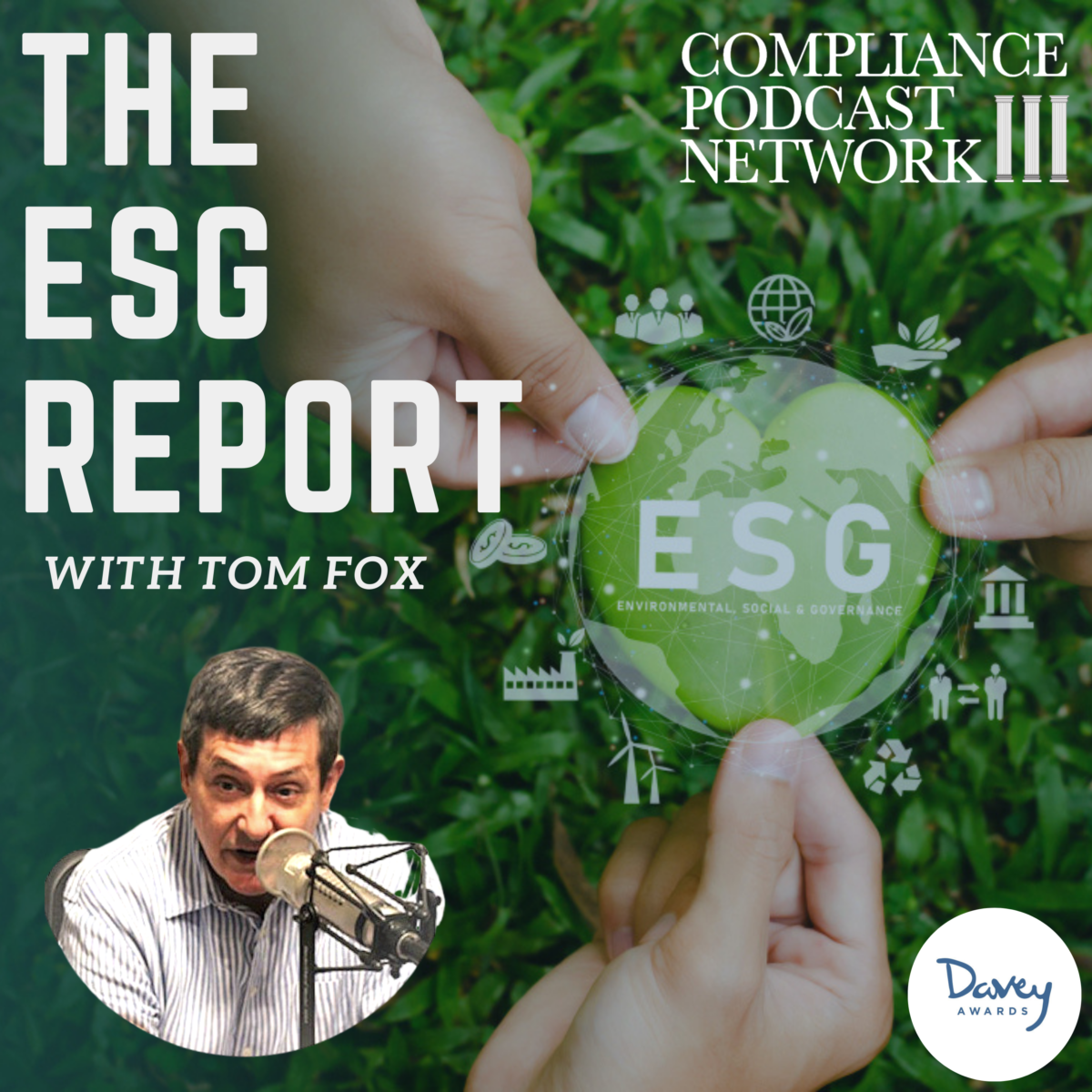The ESG Report podcast is hosted by Tom Fox. In this special 3-part series, I take a deep dive into EV battery regulation in the US and EU.
In Part 2, we consider the impact of the Inflation Reduction Act on EV battery production and purchase. Pamela Fierst-Walsh is a prominent voice in critical mineral supply chain issues and a recognized leader in policy development, ESG issues, and international affairs. From 2017-2021, Pamela drove the reorientation of U.S. diplomacy toward prioritization of minerals supply chains as the U.S. State Department’s Senior Advisor for Critical Minerals. She coordinated the U.S. Departments of Commerce, Defense, and Energy worked together to support National Security and Economic Council agendas. In June 2021, she played a key role in shaping the Biden Administration’s 100-day Supply Chain Review on Building Resilient American Supply Chains to improve U.S. competitiveness for clean energy and technological advancement, which set the foundation for greater U.S. clean energy investment under the 2022 Inflation Reduction Act and other acts. She regularly advises senior U.S. officials, private sector actors, and foreign counterparts. In 2023, she joined the Board of IMPACT, a non-profit organization focused on empowering communities through greater governance of the natural resources they rely upon. She is the CEO of PFW Advisory, LLC, and is based in Washington, DC.
Pamela’s perspective on the Inflation Reduction Act, especially on the consumer tax incentives for EV battery purchases, is shaped by her deep understanding of supply chain dynamics, regulatory requirements, and the legislation. She views the Act as an excellent opportunity for consumers to significantly reduce the cost of EV battery purchases, while also stipulating manufacturers track and ensure the traceability of components in their supply chains for compliance with the Act. She underlines the broader implications of the Act, which, beyond consumer incentives, nudge manufacturers to adapt their supply chain practices and consider potential reputational risks associated with non-compliance. Pamela sees the Inflation Reduction Act as a multifaceted initiative that benefits consumers and prompts manufacturers to align their operations with regulatory requirements and evolving business norms.
Key Highlights:
- EV Battery Discount and Supply Chain Transparency
- Strategic Resource Control for Domestic Manufacturing
- Critical Minerals Supply Chain Compliance Standards
- Due Diligence and Compliance
Resources:
Pamela Fierst-Walsh on LinkedIn
Tom Fox
Connect with me on the following sites:






